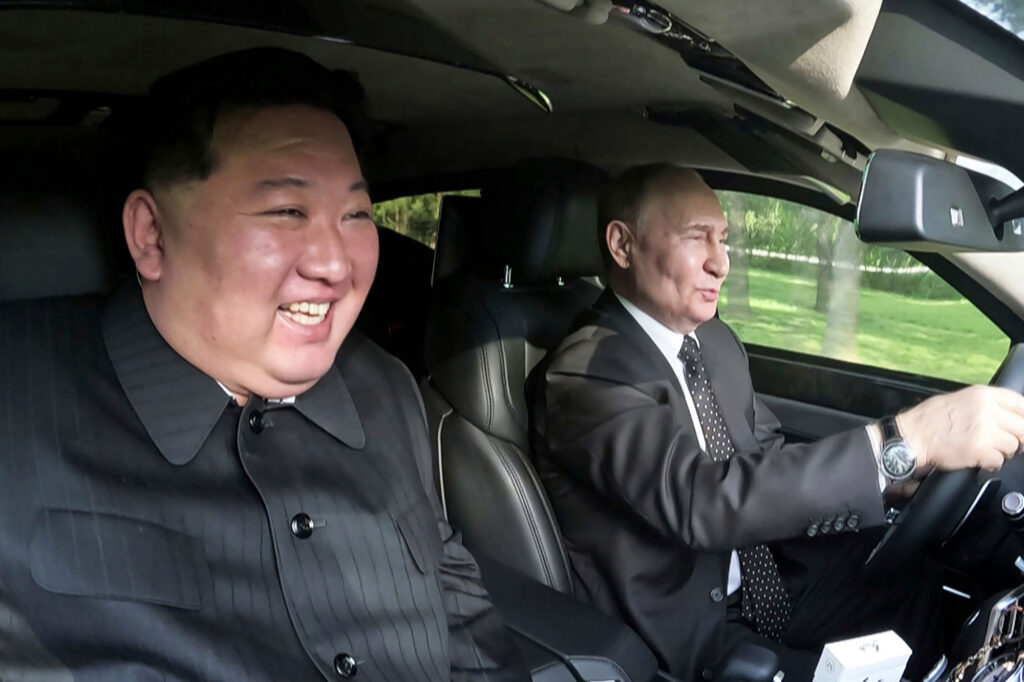Human Rights on the Edge

I.
Can human rights survive the decline of global Western hegemony? Rights supporters will no doubt find the question uncomfortable, if not heretical, for it contravenes the very tenets on which the international human rights enterprise has long rested: its claim to universality, its anchoring in impersonal international norms, and its demonstrated record of trying to hold accountable both non-Western and Western governments for their rights violations. Not only that, but the argument that human rights are in essence a Western imposition has long been rights-abusing governments’ weapon of choice to reject international scrutiny and hound rights activists at home.
But a much greater danger than discomfort or fear looms: if the human rights enterprise fails to break free from its current downward spiral, then its influence will continue to decline and its effectiveness more profoundly questioned. Granted, to work in human rights – as I have had the privilege to do for over two decades – requires a certain level of optimism. After all, trying to moralize, or at least temper, the conduct of states through international law is bound to remain forever challenging, contested and tenuous. Setbacks are to be expected. Nevertheless, there is a point at which optimism can feel like burying one’s head in the sand.
As large-scale geopolitical shifts drive profound changes in the international system and states reprioritize sovereignty and security over cooperation and global governance, the human rights movement can no longer afford to ignore how much it has depended on a postwar, Western-dominated international order, and what its decline will mean for the global human rights regime and the modicum of protection it offers to billions of people around the world. The human rights movement must also examine its own responsibility for clinging to tactics that have long been shown to have diminishing returns.
Many factors explain why support for human rights is evaporating worldwide. Among the most commonly cited are the global retreat of democracy; the growing power and influence of authoritarian countries, especially China, now the world’s second-largest economy and military; the ability of states to resist external pressure by turning to other authoritarian allies; the rise of illiberal or populist movements (including in the United States and other long-established liberal democracies); the impact of disinformation and social media on public trust; a perception that human rights fail to address global inequalities; a deadlocked United Nations Security Council that cripples multilateralism; and the cumulative effect of decades of Western double standards in addressing crises and conflicts.
While these issues are widely lamented in human rights circles, the true consequences of the tectonic shifts in the international order, and what they portend for human rights, remain largely unexamined—and are therefore left unaddressed.
The reason for this collective myopia is simple enough. Most debates about the future prospects of human rights tend to look at the merits of the enterprise itself: how much—or how little—has been achieved, and whether normative progress in legislation, international treaties, institution building, and statement of political commitment by governments are likely to turn into real-world progress. These assessments are subjective in nature, if not empirically impossible to ascertain: violations that did not occur because of the restraining effect of human rights standards is not something that can be quantified.
The results of this approach are unsurprising. Those who see progress in the rights enterprise conclude that there is “evidence for hope” (to quote the title of a well-known book by Harvard scholar Kathryn Sikkink). Conversely, those who don’t see it as a success predict the “end times” of this “last utopia” (to borrow Yale historian Samuel Moyn’s disdainful term). In between, a large cohort of critics offer their own prescriptions for addressing the observable global decline in the moral authority of human rights norms. These range from “reinventing” them to making them more “pragmatic,” “decolonizing” their institutions, or shifting their focus to any number of issues, such as economic inequality, climate change, or strictly “core” civil and political rights.
What these approaches miss is that the fate of human rights depends far less on what the human rights movement does than on the structures of the international order and how they shape the interaction between states – which it ultimately has little control over. As the by-product of a waning postwar order, international human rights must urgently find a way to endure without the benefit of its support if it is to survive in a vastly transformed and much less favorable international system.
Gaza, coming at the end of a long list of failures by the international community to prevent mass atrocities, has made one thing clear: the direction of the human rights enterprise today is no longer a question of advances and setbacks, of incremental progress against historic odds, of determining which tactics might be most effective. It is a question of whether, in the face of a new global order, human rights, broadly defined here to include humanitarian concerns, will manage to remain relevant to international politics, and whether they can retain their place as rubrics of international law and institutionalized diplomacy between states.
Autocracies now account for 35 percent of the world economy, up from 10 percent in 2000. Europe’s share of the world economy has been cut in half over the past 25 years. Middle powers that are openly hostile or ambivalent about the international human rights regime, such as Russia, Turkey, India, or the Gulf monarchies, have all emerged as significant economies in their own right. Although China’s economy, the second largest in the world, is showing signs of having peaked, it remains the top trading partner of almost all the world’s developing countries, as well as their lender of first and last resort, dwarfing financial assistance by the World Bank and the IMF. Whether or not this is a positive development, these changes reflect a radically different distribution of power in the world than there was two decades ago.
The election of Donald Trump will further accelerate this trend as the US retreats from the stewardship of the international system, withdraws its stated (if often erratic) attachment to the cause of liberal democracy, exhibits indifference or contempt for international laws and agreements, bestows legitimacy to regimes culpable of egregious violations, and undercuts the longstanding cohesion among Western powers on issues of global governance. In short, America’s unmatched economic prosperity could bring down the same postwar order that it once did so much to construct.
If the human rights enterprise wishes to stay relevant and effective, it must shed its magical thinking about the arc of history ultimately bending toward justice. Instead, it must reckon with the fact that the international order that underpinned its rapid expansion around the world was in large part the product of Western dominance, and US predominance above all. As this hegemony wanes, so will the support of the international system, particularly in respect to institutionalized rights diplomacy, participation in mechanisms designed to monitor the implementation of international rights agreements, and attention to international human rights law.
II.
Human rights largely owe their global spread to being embedded in the United Nations, the central pillar of the postwar international order. Although limited and balanced by the principle of “non-interference in the domestic affairs” of member states, this inscription gave human rights the indispensable foothold it needed to become a legitimate, if always contested, rubric of international diplomacy and, later on, an extensive area of international public law. The simple fact that the number of UN members grew exponentially, from 50 in 1945 to 193 today, guaranteed for a while an almost mechanical diffusion of UN-defined human rights norms (a small price for states to have one’s sovereignty recognized).
In contrast to the prewar world, where state sovereignty was seen as almost absolute, it is no exaggeration to talk about the postwar advent of a “human rights revolution.” Under the impetus of the United Nations, individuals for the first time gained a status under international public law (the laws that govern relations between states). Of equal, if not greater, importance was the diplomatic revolution it unleashed: for the first time in the history of international relations, there was a standard expectation that states would have to answer for the way they treated people under their jurisdiction in the very forum that recognized a critical element of their statehood. The human rights movement subsequently benefited from a series of favorable developments in world politics: decolonization, successive democratic “waves”, the outcome of the Cold War and the collapse of the Soviet Union. Each credited human rights as driving inspiration for change.
If the Western-dominated postwar institutions created the conditions for the global spread of human rights aspirations, much of the progress made in terms of state commitments to human rights—including the drafting and adoption of international covenants—was the result of astute advocacy from below and often had little to do with state commitment to human rights per se (it was seen, for instance, during the Cold War as a useful ideological cudgel against the socialist camp). States that signed the Universal Declaration of Human Rights and later ratified international human rights covenants (there are, to date, nine core international human rights instruments supplemented by additional optional protocols) probably did not anticipate that these documents, lacking any enforceable mechanisms, would gain such widespread traction beyond the UN corridors and be used by legal experts and activists to pressure governments to uphold these principles.
What was initially conceived by states as high-minded statements with few hard commitments turned into something quite different: a strikingly popular ideology that has led to the creation of a host of NGOs including Amnesty International and Human Rights Watch (the two organizations with which I have spent most of my professional life), a major topic in national and international media, and an exponential growth in the number of lawyers, scholars, activists, publications, university programs, and advocates around the world. Many governments came to find out that Robert Sherwood, FDR’s speechwriter, was correct in observing that “when you state a moral principle, you are stuck with it, no matter how many fingers you have kept crossed at the moment.”
It is hard to overstate how groundbreaking the expectation that states should be attentive to individual rights and accountable to the community of states is. From the emergence of the modern sovereignty-based Westphalian system in 1648 to the end of World War II, the idea that sovereign states did not have absolute power over the people under their rule was pure anathema. Neither the Concert of Europe in the nineteenth century nor the League of Nations in the interwar period saw the rights of individuals as having anything to do with the rules governing relations between states.
When reports of mass arrests and deportations of Jews and other “enemies of the people” in Nazi Germany reached the U.S. State Department in the early 1930s, the conclusion in Washington was that these policies, however deplorable, were well within Germany’s rights as a sovereign state. It took two world wars and the Holocaust to put an end to this absolute view of state sovereignty. But it was not until the 1990s that the features we now recognize as part and parcel of the international human rights system were put in place, chiefly as a reaction to the Balkan wars and the Rwanda genocide: the quest for accountability, the responsibility to protect populations from atrocity crimes, the establishment of UN-backed investigative mechanisms and the increased use of economic sanctions against wayward governments.
Today, however, countries opposed to the very principle of human rights accountability are on the ascent. The traditional Western “champions” of integrating human rights into the fabric of international relations no longer have a monopoly on the economic levers of material power. In addition to this loss of leverage, the countries that continue to play the largest role in supporting the postwar human rights system are questioning their own commitment to human rights. In many Western capitals, the question is no longer how to reconcile stated commitments with practice, but whether such commitments should be made at all. The “war on terror,” the ever-harsher treatment of migrants and refugees, and the loss of individual privacy thanks to what the celebrated American sociologist Soshana Zubboff has aptly called “surveillance capitalism,” have already created massive exceptions to human rights obligations, undermining the stature of liberal democracies and undercutting their ability to press non-Western states on rights issues.
The implications are profound. The legitimacy of reciprocal human rights scrutiny will face greater resistance. States large and small will further deprioritize human rights diplomacy. Rising global and regional powers may selectively address human rights issues that suit their interests or redouble their efforts to undermine the system. China, which has long identified human rights ideals as a destabilizing factor for Chinese Communist Party (CCP) rule, is more than likely to continue its efforts to build a large enough coalition of member states ideologically or opportunistically opposed to rights accountability to cripple the human rights functions of the United Nations and ultimately hollow out its mandate. It will find many willing allies among authoritarian regimes. In addition, as climate change and artificial intelligence move to the forefront of global priorities, human rights concerns will be pushed even further down what remains of the international agenda.
The long-term impact of gutting the global human rights system will be severe as more and more governments will feel emboldened to ride roughshod over the prescriptions of international law, suppress their opposition, curtail the rights of minorities, roll back gender equality, restrict freedom of expression, carve out ever more exceptions to fundamental rights on the pretext of “national security,” and shrug off demands for accountability, confident that they can muster enough support from other states to evade accountability and avoid repercussions. And it will most probably fuel what the head of the International Crisis Group (ICG), Comfort Ero, calls “adventurism”: a willingness by states to use force, engage in armed conflicts directly or through proxies because “you can get away with it.”
These cumulative developments are likely to result in a global decline in the number, resources, and influence of the human rights enterprise, particularly where guarantees of civil society independence remain fragile. This will ultimately tilt the international playing field further in favor of authoritarian systems and toward a return to a conception of state sovereignty that precludes attention to human rights and humanitarian concerns, no matter how consequential they may prove to be for international peace.

III.
Adaptation to a shifting state system is now the core challenge. Pursuing broad social transformations is no longer realistic. The critical function that the international human rights regime has established is the onus it places on governments to justify their actions according to a set of supra-national norms about how people should be treated. States’ legitimacy suffers when they contravene these norms, and they risk being ostracized by other members of the international community—something states always seek to avoid given the inherently adversarial nature of international relations.
Likewise, the practical significance of international law to the array of actors involved in vindicating human rights lies not so much in its enforcement in judicial settings or the exact adherence of states to its mandates, but rather in the legitimizing influence derived from invoking the international human rights framework to fight injustices, remove barriers to equality and press for accountability. Demonstrators in Iran, China, Afghanistan, or Russia harbor little faith of obtaining redress through the courts—yet they mobilize the language of human rights because it allows them to transcend their less-than-hopeful domestic settings by inscribing their struggle in the global context of world politic and forcing their governments to justify themselves on the international stage.
Indeed, states almost invariably still justify their behavior in terms of compliance with legal norms, while at the same time labeling the actions of their rivals as “illegal” in order to discredit them. As Ian Hurd from Northwestern University has noted: “Governments profess to engage in peacekeeping rather than colonial occupation, enhanced interrogation rather than torture, self-defense rather than aggression.” While this is often not enough to constrain the most powerful states, or those willing to be outcasted, compared to the prewar era the human rights regime seems to have had a moderating effect on state conduct. The price for committing serious human rights violations that can be documented is not nil, as evidenced by the regularity and determination with which authoritarian states systematically harass, silence, arrest, or even murder human rights activists, restrict access to international monitoring organizations, or block UN action.
Human rights advocates’ belief that normative progress leads over time to improvements on the ground overlooks how truly tenuous the place is that human rights has occupied in international relations. This is not to deny that human rights resonate with people irrespective of borders, but the hard reality is that human rights could only have gained its current status in a world order where geopolitics favored the values and preferences of liberal, mostly Western, liberal democracies, backed by the most powerful actor in the international system, the United States. The challenge is not a lack of norms—it’s the ability to mobilize support to enforce the existing ones.
The rights movement must also examine its own role in the growing disaffection it faces. Nearly eight decades since the Universal Declaration of Human Rights, defending the accomplishments of the human rights enterprise often seem contrived and rings hollow in the face of ongoing atrocities. Once-compelling factors—political, social and economic—have lost their force amid deepening North/South inequalities, democratic decline, entrenched impunity for powerful states, and blatant double standards. Actions taken to defend the rights of individual and groups is always worthwhile. But the larger question is whether human rights is still the right enterprise to invest in if the objective is to have systemic influence on state behavior.
Perhaps the mistake has been to take what are essentially metrics – how states treat individuals and marginalized groups, and how they deal with civilians in armed conflicts – and to believe that it could be an instrument of change on its own. Just as we find barometers indispensable for predicting the weather but don’t rely on them to shield us from it, human rights metrics help us understand conditions of oppression and discrimination but are not, on their own, able to change them. Especially in authoritarian settings where mobilizing public opinion is both harder and less effective in influencing powerholders.
Or maybe what was misguided was to see the positive role of human rights through the lens of functioning democracies with extensive state bureaucracies. Under these circumstances, human rights do indeed serve indispensable functions, such as providing an ideal to guide the design of fair institutions, a touchstone for the judicial system, or a mechanism to curb discriminations and guarantee minority rights. With goals compatible with the foundational values of democratic regimes, solid guarantees for civil society and media freedom, and the measure of accountability brought by periodic elections, human rights advocates have achieved measurable progress over time.
But regrettably, the world has always been largely non-democratic, and many states lack robust state institutions or the fiscal basis to develop them. Authoritarian systems are, in the last analysis, hardly compatible with many principles of international human rights law, such as freedom of expression, freedom of association, and the right to participate in governance or free elections. Since the full realization of human rights as defined under international law would ultimately require democratization – hence regime change – the net effect of undertaking human rights work in authoritarian settings amounts to opposition of a political nature. Authoritarians of all stripes have always recognized this, and have therefore treated human rights as a threat, human rights activists as political dissidents, and human rights criticisms as politically destabilizing influences. Expecting otherwise was illusory, and the response of authoritarian regimes, “shrinking the civic space”, hounding down rights activists and whipping up nationalist sentiment—the so-called “Autocrat’s Playbook”—should have been better anticipated and prepared for.
Whatever the explanation for why the rights enterprise may have fallen short, it is no less true that much of the criticism directed at it is based on a fundamental contradiction: the very standards by which critics claim that human rights have failed are themselves drawn from human rights values. If genocide, crimes against humanity, torture, economic exploitation, colonialism, discrimination and disregard for international law are considered outrageous, that requires holding a value system that is based on the idea that human rights are important and that violating them is wrong. Is blatant impunity for human rights violations evidence that these rights are useless, or on the contrary proof that they remain the fundamental benchmark against which we assess state conduct? In both cases the solution turns out to be the same: what is need is more, rather than less, attention to human rights. The challenge is how to convince states of doing so.
IV.
The human rights movement must accept that it no longer commands the authority that it once had, and that this trend will continue as states deprioritize rights issues. No matter how universal the human rights enterprise claims to be, the reality is that in the diplomatic realm, only liberal democracies have consistently backed financially and institutionally its endeavors, irrespective of how they conducted their foreign policy in practice. It is imperative for the human rights movement to anticipate their further decline.
Similarly, for liberal states big and small, the idea that ad hoc groups formed to address specific problems can become an alternative to global institutions will run the risk of ceding more ground to illiberal powers. Global governance requires global participation. Western governments as well as rights supporter must accept that the price for staying relevant will require them to cede the leading role to other countries and actors that are able to forge new agreements, even if this requires making concessions on the content and hierarchy of the principles that underpin international rights diplomacy. Finding new common ground as stewards of this reformed space will be challenging, particularly because publicizing abuses—which inevitably antagonizes states—remains the most powerful tool for highlighting human rights issues.
The main thrust of the human rights enterprise has always been to portray states and governments as beasts to be tamed, named and shamed into doing the right thing. But this was predicated on the presence of structural incentives in the postwar international order that are rapidly disappearing, a dynamic that will only accelerate with the autocratization of the United States. For human rights to endure, it must somehow find ways to remain an accepted rubric of international diplomacy among non-Western states as well.
Human rights advocates also need to do a better job arguing that respect for rights ultimately empowers rather than disempowers states, and to articulate real solutions alongside condemnations. More controversially, they must distinguish which rights should be prioritized in which context, and refrain from applying the same recipes to fundamentally different types of political regimes. This is a struggle for relevance, a precondition for influence.
There are reasons to be confident in the resilience of human rights aspirations around the world. After all, these aspirations were never driven not by the abstract ideals of the United Nations Charter, nor by some sort of broadly benevolent Western hegemony, but by concrete government abuses, situations of chronic injustice, and the reality of a shared humanity. But aspirations are not enough. The challenge ahead is to find how to channel them into the international system without relying solely on institutional Western patronage before it is too late.
Nicholas Bequelin is a Senior Fellow at Yale Law School’s Paul Tsai China Center. He previously served as Asia Regional Director at Amnesty International and as a Senior Researcher at Human Rights Watch.


